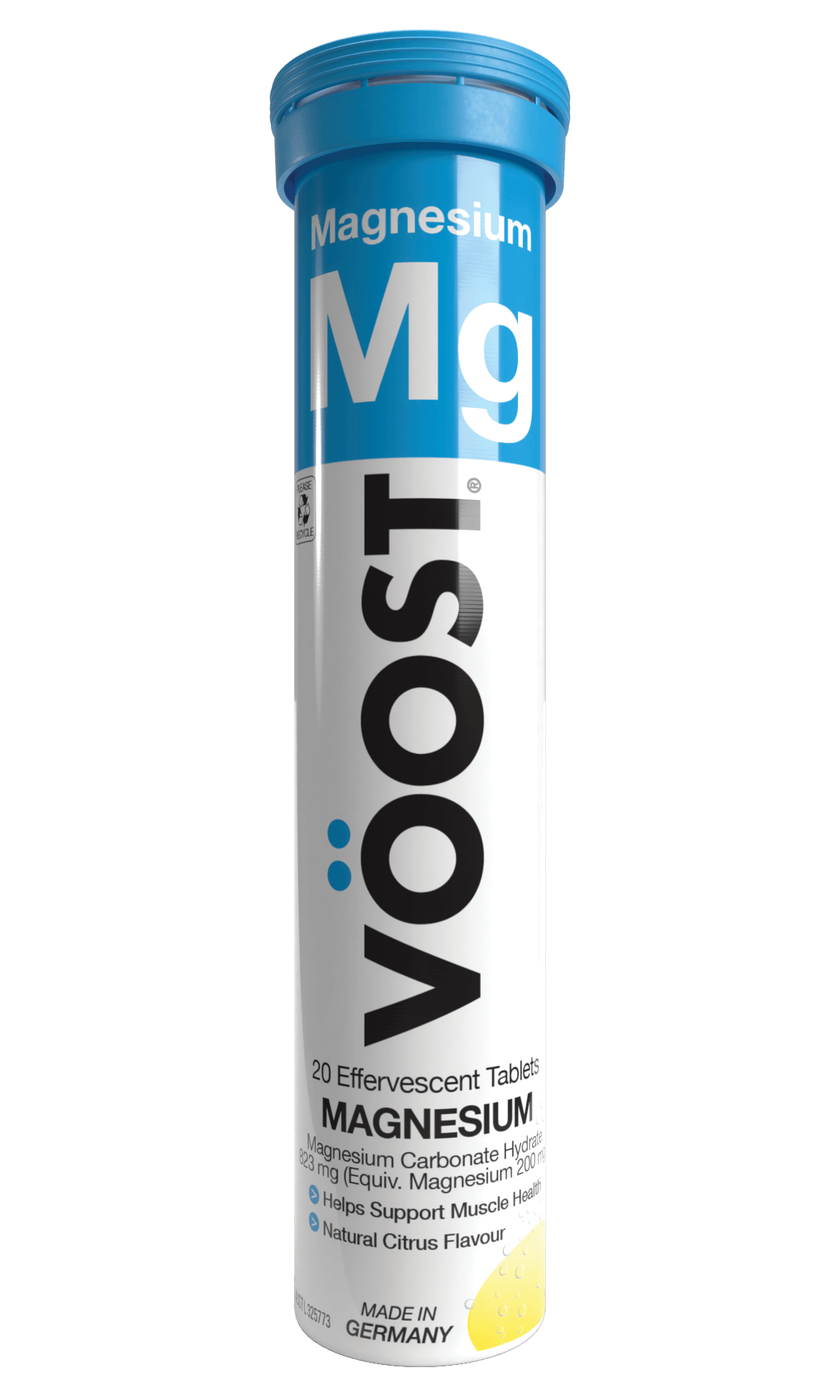If 2023 signals the start of your fitness journey, you may not be aware of the mineral Magnesium and the vital role it plays in your body. Whilst it’s not as well-known as the likes of Vitamin C or Vitamin B, more and more people are becoming aware of the benefits of getting your RDI of Magnesium.
Disclaimer: This article is for informational purposes only and is not a substitute for professional medical advice, diagnosis or treatment. Please reach out to a qualified medical professional before engaging in any physical activity, or making any changes to your diet, medication or lifestyle.
Whilst Magnesium is not produced by the body, it is naturally present in many foods, added to other food products and available as a supplement.
Due to the fact that it is not produced by our bodies, you need to get your daily intake through Magnesium-rich foods such as whole grain cereals, leafy greens, nuts and seeds. Eating a variety of foods will help you meet and maintain your body’s Magnesium requirements as well as providing you with other essential vitamins and minerals. It’s important to understand, a healthy balanced diet should provide all the Magnesium you need however, if you sometimes struggle to eat a healthy balanced diet because you lead a busy lifestyle, that’s where supplements come in.
What’s the role of magnesium?
Magnesium has many parts to play in the function of our bodies – it’s actually involved in over 300 cellular functions.¹ It helps to release energy from food, assists with normal muscle function, contributes to our body’s electrolyte balance and contributes to a reduction in tiredness and fatigue. Maintaining the right balance of electrolytes is important as it helps your body’s blood chemistry and other vital processes. Magnesium also works with vitamin D and Calcium to help support your bone health. Magnesium helps the parathyroid glands, which produce hormones important for bone health, to work normally. ² ³ ⁵ ⁶
What happens if I don’t get enough magnesium?
In the short term, you probably wouldn’t notice too much if you didn’t get your recommended intake. When healthy people have low intakes, the kidneys help retain magnesium by limiting how much is lost through urine.⁷ If you think that you’re not getting enough Magnesium, contact a health professional.
A lack of magnesium may be more noticeable for those who do a lot of intense exercise. Research suggests exercise encourages a redistribution of Magnesium in the body to accommodate your metabolic needs. So, ensuring you’re getting sufficient Magnesium in your diet can be useful for runners and anyone who participates in vigorous exercise.
What does a magnesium supplement do?
If you’re lacking in nutrients from natural sources, Magnesium supplements offer a simple way to support and supplement vitamin and mineral intake. Our effervescent vitamins and mineral supplements offer a convenient and an affordable way to help you reach your RDI's. Simply add one to 200ml of water and enjoy!
How much magnesium do I need?
According to the Australian Government National Health and Medical Research Council, the amount of Magnesium you need is:
310mg a day for women aged 19-30
320mg a day for women aged 30+
400mg a day for men aged 19-30
420mg a day for men aged 30+
You can get all of the Magnesium you need from a varied, balanced diet however, there has been a great deal of research suggesting that this is becoming harder and harder to do, due to the vitamin and mineral content of vegetables dropping considerably in the last few decades.
When making lifestyle changes and taking on a new fitness regime, it’s important to remember to build up steadily and to eat a healthy balanced diet. Most of all, enjoy being active!
This article is for informational purposes only and is not a substitute for professional medical advice, diagnosis or treatment. Please reach out to a qualified medical professional before engaging in any physical activity, or making any changes to your diet, medication or lifestyle.






